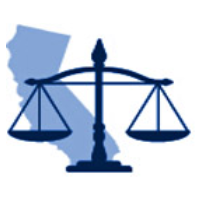Court-Proposed Fees Would Limit Public Access to Records

When California Supreme Court Chief Justice Tani Cantil-Sakauye warned last week that the judiciary was in danger of becoming a “user-fee institution” because of budget cuts, her concerns were primarily about the cost of justice “falling on those least able to afford it.”
However, a little-noticed judicial fee tucked into Governor Jerry Brown’s proposed budget threatens to limit public access to documents and make it far more difficult for journalists to review critical files. A $10 fee would be imposed on anyone requesting a court file, a seemingly small amount until one considers that journalists covering the courts routinely request access to 10 or more documents in the course of a day.
That adds up in a hurry. Beat reporters often make document requests, which can be filled quickly by court employees, to check on new filings at the end of the day. They are rarely charged, although the current law assesses a $15 fee if the search takes more than 10 minutes. But under the new proposal, drafted by the Administrative Office of the Courts and attached to the budget as a trailer bill, there would be a charge for “each name, file or other information for which a search is requested.”
According to the Courthouse News Service, court reporters regularly peruse 30-40 files a day at the San Jose Superior Court and 60-70 in San Francisco.
Journalists and the public they serve wouldn’t be the only people affected by the fee. Researchers working for law firms, landlords and companies who scour court records for information on debts, probate and evictions would feel the impact.
California courts have seen their budgets cut a collective $1 billion over the past five years, leading to closed courthouses, curtailed services and justice delayed. Fees for service are seen as a way of making up some of the loss. But critics see other possible motives.
A recent proposed rule by the courts, as part of a pilot project for selling court records online, would redefine “officially filed” documents as being those that have been processed in an undefined bureaucratic system, rather than simply submitted to the court.
That raises questions about First Amendment rights of access to government proceedings, a point elaborated on in a 106-page letter sent to the courts on behalf of the California Newspaper Publishers Association, the First Amendment Coalition, Californians Aware and Courthouse News Service. At best, the letter asserts, the proposed changes are confusing without any real function. At worst, they are nefarious.
“The proposed rule changes would thus give court administrators unbridled discretion to delay press and public access to fundamentally public records until administrators decide such access is appropriate,” the letter says.
–Ken Broder
To Learn More:
Proposed Search Fee Threatens Access to Public Court Records (by Maria Dinzeo, Courthouse News Service)
Proposal Would Charge $10 to Search Court Records (by Judy Lin, Associated Press)
$10 Court-Records Access Fee Proposed (by Bob Egelko, San Francisco Chronicle)
Press Group Comments on Mandatory E-Filing (pdf)
California Courts to Cut Services, Increase Fees under Budget Proposal (by Erika Aguilar, KPCC)
Lawsuit Filed to Stop Closures of L.A. Courts Critical to the Poor and Disabled (by Ken Broder, AllGov California)
- Top Stories
- Controversies
- Where is the Money Going?
- California and the Nation
- Appointments and Resignations
- Unusual News
- Latest News
- California Forbids U.S. Immigration Agents from Pretending to be Police
- California Lawmakers Urged to Strip “Self-Dealing” Tax Board of Its Duties
- Big Oil’s Grip on California
- Santa Cruz Police See Homeland Security Betrayal in Use of Gang Roundup as Cover for Immigration Raid
- Oil Companies Face Deadline to Stop Polluting California Groundwater





